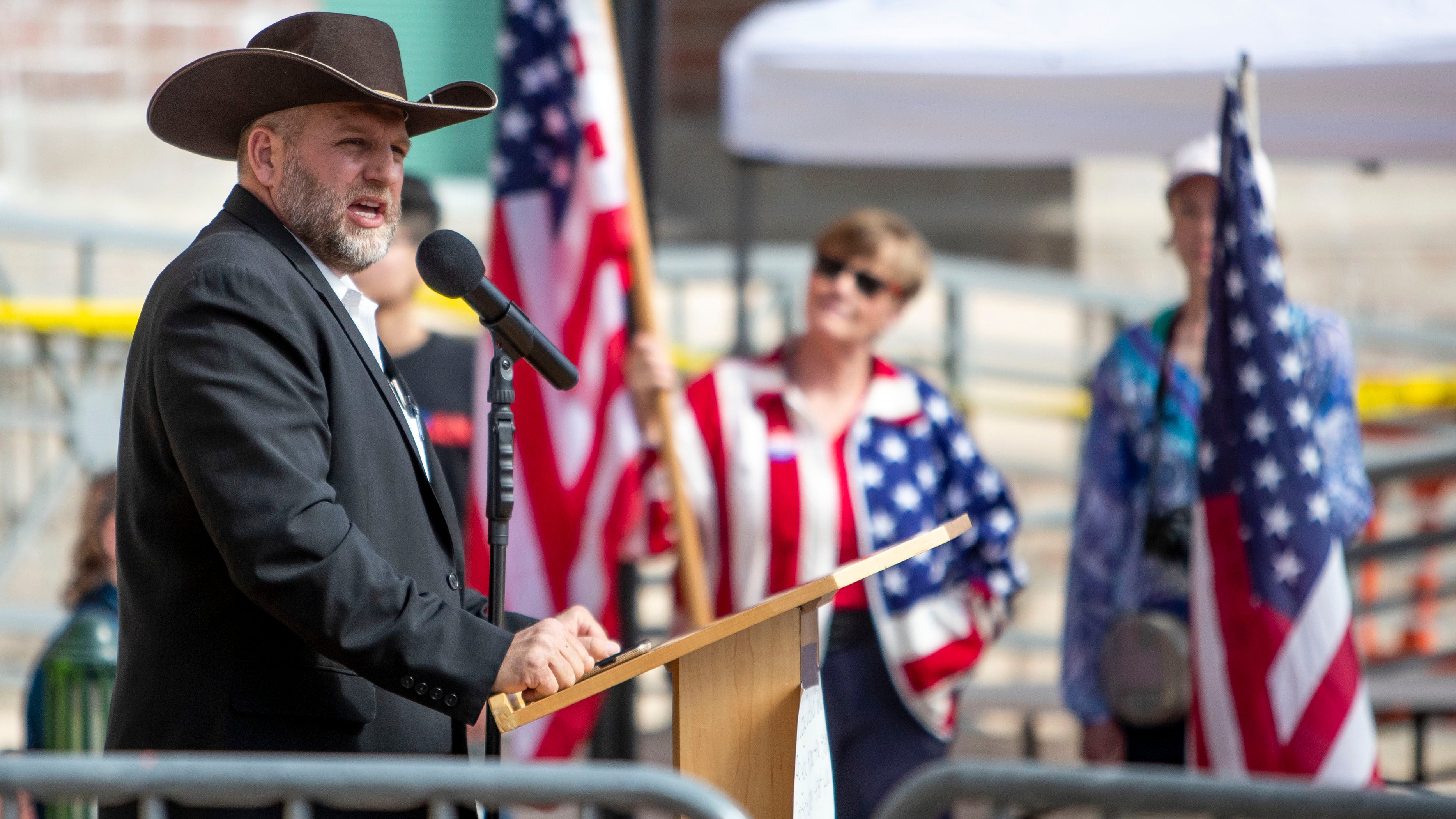Ammon Bundy asks judge to toss trespassing verdict, acquit
Anti-government activist Ammon Bundy has asked a judge to toss his conviction for trespassing at the Idaho Capitol and acquit him instead

Your support helps us to tell the story
From reproductive rights to climate change to Big Tech, The Independent is on the ground when the story is developing. Whether it's investigating the financials of Elon Musk's pro-Trump PAC or producing our latest documentary, 'The A Word', which shines a light on the American women fighting for reproductive rights, we know how important it is to parse out the facts from the messaging.
At such a critical moment in US history, we need reporters on the ground. Your donation allows us to keep sending journalists to speak to both sides of the story.
The Independent is trusted by Americans across the entire political spectrum. And unlike many other quality news outlets, we choose not to lock Americans out of our reporting and analysis with paywalls. We believe quality journalism should be available to everyone, paid for by those who can afford it.
Your support makes all the difference.Anti-government activist Ammon Bundy has asked a judge to throw out his conviction for trespassing at the Idaho Capitol and acquit him instead because he says the state's trespassing law should not be applied to public property.
Idaho's courts, like many states, allow defendants to ask the judge for an acquittal within several days of a jury verdict. The move is seldom made, however, and rarely successful.
It stems from Bundy's arrest on Aug. 25, 2020, after he refused to leave an auditorium in the Statehouse after officials ordered it to be cleared. Officers also said he went limp and refused to stand up and put his hands behind his back. Officers ultimately wheeled him out of the Capitol building on a swivel chair.
The arrest came during a special session of the Idaho Legislature that was called so lawmakers could address issues related to the coronavirus pandemic. Bundy was among dozens of demonstrators — many of them members of his “People's Rights” organization — who attended the special session to protest because they were angry about coronavirus-related restrictions. During one of the protests, unmasked protesters joined by Bundy forced their way into a House gallery with limited seating, shattering a glass door.
Bundy's arrest came the next day in an auditorium that was being used for lawmakers considering a measure on coronavirus-related liability. The meeting was halted and switched to another room after more than 100 protesters shouted down the lawmakers. Most attendees then left, but Bundy and some others decided to stay even after officers told them the room was closed to the public.
In court documents filed Thursday, Bundy’s attorney, Seth Diviney, asked the court to toss the guilty verdict returned July 1 and acquit Bundy of misdemeanor trespassing and misdemeanor resisting or obstructing officers.
Diviney contends that Idaho’s trespassing law is “unconstitutionally vague,” saying reasonable visitors to the Statehouse wouldn’t know whether the auditorium is open or closed to the public during normal business hours.
Bundy was sentenced to three days in jail but credited for time already served. Fourth District Magistrate Judge David Manweiler also ordered Bundy to complete 48 hours of community service and pay a $750 fine.
Bundy also filed two statements from Idaho lawmakers supporting his claims. Rep. Judy Boyle and Sen. Christy Zito — both Republicans who testified on Bundy's behalf at trial — say the Legislature never intended the trespassing law to be applied to public property.
During the trial, witnesses, including state House Speaker Scott Bedke, testified that the auditorium sometimes is open to the public, like during legislative hearings, but closed when it is not in use or when legislative leaders determine that shutting it is necessary to maintain decorum and order.
Bedke also noted that parts of the Statehouse are generally closed to the public at times, including lawmakers' offices.
Shortly after the jury returned the guilty verdict, Bundy tweeted that he had no intention to appeal, saying, “The people of Idaho have spoken and I will serve my sentence as ordered.”
Bundy garnered international attention when he led a group of armed activists in the 2016 occupation of the Malheur National Wildlife Refuge in Oregon to protest federal control of public lands. He and others were eventually arrested, ending the 41-day occupation. An Oregon jury later acquitted Bundy of all federal charges in that case.
In 2014, Bundy, several of his brothers and his father led an armed standoff in Nevada with Bureau of Land Management agents who tried to confiscate his father’s cattle for grazing on public land without a permit. He spent almost two years in federal custody before the judge later declared a mistrial.
Ammon Bundy is running to be Idaho's next governor as a Republican in a crowded race. He moved to the state shortly after the occupation at the wildlife refuge but acknowledged at his trial that he has never registered to vote in Idaho.